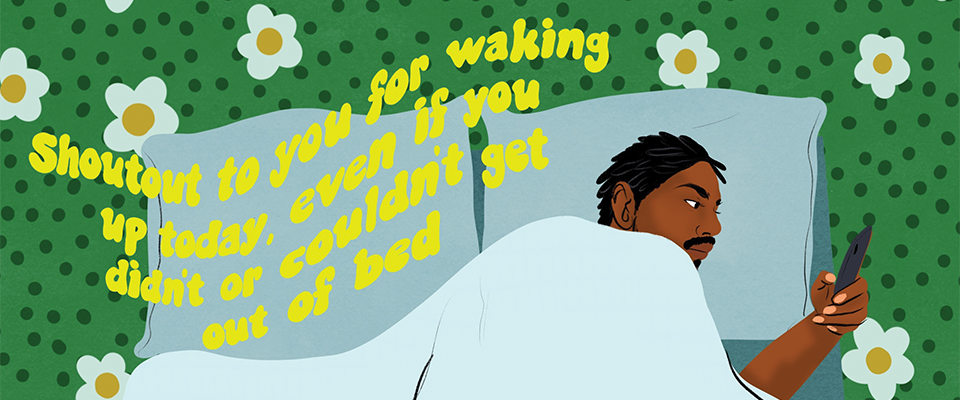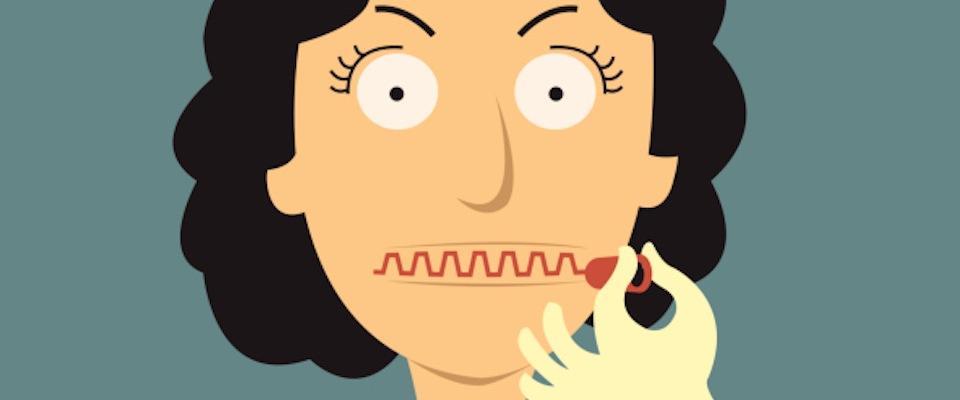Friends have called me “Twitter famous,” but you’ve probably never heard of me. One night in 2015 I fell down an internet rabbit hole. It started with a list of violent acts against women and stopped when I read a graphic description of violence against a woman who said the wrong name during sex. I sort of lost it. My thumbs couldn’t keep up with my brain as I tweeted on my phone. By my ninth angry tweet, I’d started using the hashtag #MasculinitySoFragile to capture something men try to ignore: men treat trans women, cis women, and gender nonconforming folks in violent ways. “#MasculinitySoFragile that few [men] can deal with rejection without lashing out and hurting or abusing the woman who rejected them,” I tweeted, but I wasn’t the first. “#MasculinitySoFragile it needs to take calcium supplements each morning,” @puppydogexpress first tweeted in 2013, though my late night rant two years later brought the hashtag to a much wider audience.
Many women were thankful, many men were in shock, and both highlighted that the violent “jokes” about what a man would do if rejected were anything but jokes. Some folks like Tiq Milan, a Black trans man, noted how popular notions of masculinity were not a “stoic bastion of strength and reason,” but instead grounds for policing men’s behavior, queer people’s existence, and women’s bodies. Other men were upset. They took these criticisms as personal attacks rather than opportunities to reckon with their behaviors. One man unironically challenged women to fight him to “see who’s fragile.”
#MasculinitySoFragile brought thousands of followers to @anthoknees—my Twitter account where I rant about anti-Blackness, gender, and sexuality. I now have over 52,000 followers, and my tweets were seen 5.93 million times in September of this year alone. Yet my relative clout enhances the proverbial target on my back for harm. So, why do it?

From 2015-16, Twitter felt like an escape. It was my last year at UC Berkeley. I was living with a new set of roommates every semester in the Rochdale cooperative on Haste Street. And I was tired. #BlackLivesMatter filled the streets of Ferguson, and we matched them in Berkeley and Oakland, singing “Kayla Moore was a freedom fighter and she taught us how to fight.” I would rush to my Mellon Mays seminar the next morning so that I could mark up a colleague’s paper in exchange for my own. Then I’d join my Black organizing comrades to talk private prison divestment with the UC CFO. At home I’d be too tired from classes and organizing to tell my roommates for a third time to do their dishes. I took refuge in Twitter because the year that we convinced the UC system to divest $25 million from private prisons was also the year I could not get out of bed.
I spent hours rolling from one side of my body to the other while tweeting. I wrote affirmations for others that I needed myself. I’d tweet: “Shoutout to you for waking up today, even if you didn’t or couldn’t get out of bed” and “productivity is a capitalist enterprise and it cannot define our worth.” When my therapist told me that I was doing too much, I did more. I reasoned that “too much” didn’t include the internet and dedicated my newfound Twitter platform to mutual aid. I crowdfunded lodging for a victim of the 2017 wildfires and wrote essays on follower-chosen topics in exchange for donations to survivors of Hurricane Harvey.
But I did not set healthy boundaries for how I engaged with Twitter. Instead, I unconsciously deepened my depression by hyperfocusing on traumatic headlines. I would mourn a new Black stranger-turned-hashtag by tweeting through the pain. Invariably, a racist would reply with reasons that the Black person deserved their death. Being Black and visible online meant my notifications were full of hateful tweets. At times, trolls would spur me into a debate that led nowhere and necessitated lengthy text exchanges with friends to decompress from the interactions I had not yet learned to ignore. Still, I couldn’t stop flicking my forefinger to refresh my timeline, lost in the infinite scroll.

My life in the public continued in private; anyone could individually message me whatever they wanted. I received everything from support (‘Your tweets really boosted my confidence’) to requests for material or emotional help (‘I’m suicidal and I don’t know who else to reach out to’) to the classic trolls (‘[insert racialized and sexualized slur]’). I felt fulfilled by listening and referring them to resources. But I neglected my own needs, taking on the role of therapist without any credentials, pay, or reciprocal relationship to those I helped. When I mentioned the emotional toll of bearing witness to others’ trauma, my friend offered a simple solution: close my DMs. I realized, finally, that I did not ‘owe’ anyone my time or emotional labor merely because they followed me. I closed my messages before taking a brief break from Twitter. Then 2020 shook me.
The killings of George Floyd and Breonna Taylor spurred renewed uprisings against police violence. I reopened Twitter as usual, my anxiety spiking as I visualized dense crowds during a pandemic that required social distance to quell. Rather than return to the streets, I organized online, continuing the tradition of the Arab Spring, Occupy, and the Movement for Black Lives. On Twitter, I raised several thousand dollars for bail funds through donation-matching chains and routed huge corporate donations to small Black-led grassroots organizations. However, I was drained from deciding who needed the money ‘most’ as new victims of violence led to more uprisings and therefore more need. So I broke up with Twitter. Again.
I still struggle to find harmony when my social media visibility provides new opportunities and decreases my quality of life. And I am happier every time I take a break. Every. Time. I sleep better due to less blue light. I read more books in the time I’ve freed from my habitual scrolling. I suppose I could leave Twitter for good to resolve this tension, but I’m stubborn. I want to replenish what this digital and physical world often takes from Black people: joy. Cultivating joy means more breaks from social media, not less. More baking with loved ones, especially when my depression pushes me toward isolation. More macro shots of flowers as I walk my dog, Apple. And more saying “no.” Sacrificing my health for the good of others will never do any of us any good. My fight for Black lives must also include my own.



















